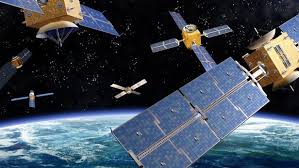
Breaking News
Importing Poverty into America: Devolving Our Nation into Stupid
 Grand Theft World Podcast 273 | Goys 'R U.S. with Guest Rob Dew
Grand Theft World Podcast 273 | Goys 'R U.S. with Guest Rob Dew
 Anchorage was the Receipt: Europe is Paying the Price… and Knows it.
Anchorage was the Receipt: Europe is Paying the Price… and Knows it.
 The Slow Epstein Earthquake: The Rupture Between the People and the Elites
The Slow Epstein Earthquake: The Rupture Between the People and the Elites
Top Tech News
 Drone-launching underwater drone hitches a ride on ship and sub hulls
Drone-launching underwater drone hitches a ride on ship and sub hulls
 Humanoid Robots Get "Brains" As Dual-Use Fears Mount
Humanoid Robots Get "Brains" As Dual-Use Fears Mount
 SpaceX Authorized to Increase High Speed Internet Download Speeds 5X Through 2026
SpaceX Authorized to Increase High Speed Internet Download Speeds 5X Through 2026
 Space AI is the Key to the Technological Singularity
Space AI is the Key to the Technological Singularity
 Velocitor X-1 eVTOL could be beating the traffic in just a year
Velocitor X-1 eVTOL could be beating the traffic in just a year
 Starlink smasher? China claims world's best high-powered microwave weapon
Starlink smasher? China claims world's best high-powered microwave weapon
 Wood scraps turn 'useless' desert sand into concrete
Wood scraps turn 'useless' desert sand into concrete
 Let's Do a Detailed Review of Zorin -- Is This Good for Ex-Windows Users?
Let's Do a Detailed Review of Zorin -- Is This Good for Ex-Windows Users?
 The World's First Sodium-Ion Battery EV Is A Winter Range Monster
The World's First Sodium-Ion Battery EV Is A Winter Range Monster
 China's CATL 5C Battery Breakthrough will Make Most Combustion Engine Vehicles OBSOLETE
China's CATL 5C Battery Breakthrough will Make Most Combustion Engine Vehicles OBSOLETE
LinkSure is building a satellite network to provide global internet access for free

Now Chinese firm LinkSure Network has announced a system of satellites to be launched by 2026, which it wants to provide internet access across the globe, free of charge.
Called the LinkSure Swarm Constellation System, the network will be headed by the LinkSure-1 satellite launching in 2019. That will be followed by 10 more satellites by 2020, with a total of 272 satellites and data processing centers scheduled to be operational within the next eight years.
As with other proposed systems of this type – including one being tested by SpaceX – the idea is to relay internet connectivity from satellite to satellite, ultimately reaching areas that don't have the necessary ground infrastructure for high-speed web access. As long as your device can see a satellite, it'll be able to get online.
LinkSure has made its name as the developer of the Wi-Fi Master Key app, which is hugely popular in Asia for getting online securely while protecting user privacy. The team tasked with setting up the new satellite system includes members from the China Academy of Space (CASC).
According to the latest estimates, just over half of the world's population – around 4 billion people – have access to the internet.



